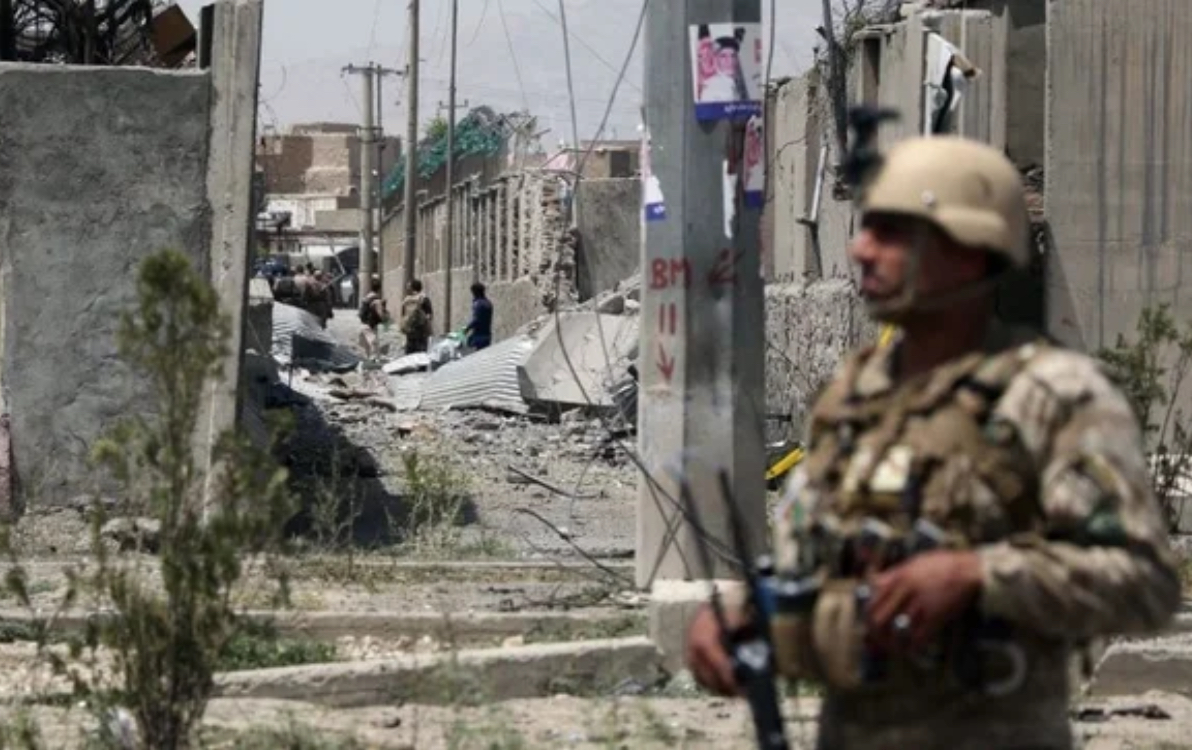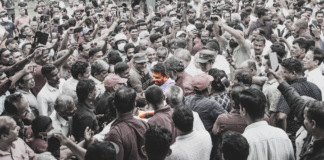Saturday September 11, 2011 marks the 20 th.Anniversary of the Twin Towers attack by the Al-Qaeda which led to the long-drawn out US-led “War on Terror”. The 8 trillion-dollar war was launched ostensibly to put an end to the scourge of terrorism. But it has neither ended terrorism nor indicated that it will be ended in the foreseeable future.
President Joe Biden came to power posing as a “dove” in contrast to his rival Donald Trump who went as a “hawk”. But Biden himself has said that he will continue to pursue terrorists where ever they may be. The only difference will be that the US will stop putting its troops “on the ground” but will use “over the horizon” methods. In other words, the targeted countries will continue to suffer damage and loss of lives while US lives won’t be lost.
The War on Terror has brought no benefits either to the US or the world (barring the US military, its suppliers and contractors). Tellingly, the war’s 20 th. Anniversary in 2021 is marked not by victory but by a monumental defeat in Afghanistan, the war’s first target. And the defeat has been at the hands of the original enemy, the Taliban.
Some Americans justify the war saying that because of it, there has not been a single terrorist strike in the US since October 2001. What is ignored is that several countries in West Asia, South Asia and Africa have had to pay an unprecedentedly heavy price in terms of human lives, territorial displacement and economic damage. The US itself lost 15,000 lives in the global campaign.
In Afghanistan alone, US$ 2.6 trillion went down the drain. According to www.gzeromedia.com US$ 19 billion was lost in Afghanistan due to corruption. US$ 88.3 billion went into the Afghan army and police which eventually collapsed. US$ 36 billion was spent on governance which was universally condemned as corrupt and inefficient. The Afghan war took the lives of 171, 336 Afghan civilians (including 71 media persons); 66,000 Afghan troops; 51,191 insurgents; 6,294 US military personnel and 1144 US military contractors’ personnel. 2.1 million Afghans had to flee from the country and 3.2 million were internally displaced.
In the wider War on Terror, 315,000 died; 255,000 insurgents and 173,000 government troops were killed; and 9.2 million were displaced in Iraq (which the US attacked in 2003). Attacks on Syria drove 7.1 million out of their homes; 4.6 million in Yemen; 4.3 million in Somalia; 3.7 million in Pakistan and 1.8 million in the Philippines.
Noam Chomsky in his recent interview to Truthout says that what worries the US ruling class is the financial cost. “Next time we should assess the costs to us more carefully, and do better,” is the thinking, Chomsky says. The US targeted Afghanistan in 2001 not because it was interested in Afghanistan or the Taliban, but in keeping the West Asian region as a wholeagainst inroads by the Russians, he points out.
In the first war in Afghanistan, when the US collaborated with the Mujahideen to drive the Russians out, its aim was to kill as many Russians as possible and not to liberate theAfghans. “The policies of the coalition were brought to the public in New York Timescorrespondent Tim Weiner’s history of the CIA. The CIA station chief in Islamabad declared that the goal was to kill Soviet soldiers, making it clear that the mission was not to liberate Afghanistan.”
And to achieve its aims, the US encouraged the Mujahideen to campaign for and impose the Shariah law. “The achievements in women’s rights in Russian-controlled cities in the late ‘80s, and the threats they faced from the CIA-mobilized radical Islamist forces, were reported at the time by a highly credible source, RasilBasu, a distinguished international feminist activist who was UN representative in Afghanistan in those years, with special concern for women’s rights, Chomsky recalls.
Basu wrote in Asian Age: “During the (Russian)occupation, in fact, women made enormous strides: illiteracy declined from 98% to 75%, and they were granted equal rights with men in civil law, and in the Constitution. This is not to say that there was complete gender equality. Unjust patriarchal relations still prevailed in the workplace and in the family with women occupying lower level sex-type jobs. But the strides they took in education and employment were very impressive,”.
The American interest was not in Afghanistan’s progress but its regression, to serve its narrow geopolitical interest. Even Biden showed the same mentality when he said that the US was not in Afghanistan to develop the country.
According to Chomsky, before it started the war in Afghanistan in October 2001, the Taliban had offered to send away Osama bin Laden, (the main suspect in the Twin Towers case) abroad,for trial. But the US rejected it with the sole intention of unleashing war and frightening the world into submission. “That’s the Bush Doctrine. Rule the region, rule the world, show our muscle so that the world knows that what we say goes, as George H.W. Bush put it,” Chomsky commented.
According to Abdul Haq, a leading figure in the anti-Taliban Afghan resistance and a former leader of the US-backed Mujahideen resistance to the Russian invasion, Afghans wanted to liberate the country themselves and would not put up with US bombing. Haq told Asia scholar Anatol Lieven: “The US is trying to show its muscle, score a victory and scare everyone in the world. They don’t care about the suffering of the Afghans or how many people we will lose.”
Iraq
In March 2003, the US initiated a war against Iraq even though it knew that Saddam Hussein had nothing to do with the 9/11 terrorist attacks, possessed no Weapons of Mass Destruction and posed no threat to the US. America’s real interest behind the killing hundreds of thousands of Iraqis at a cost of more than U$3 trillion, was to take control of the oil-rich country. When the excuse of Saddam’s possessing Weapon of Mass Destruction failed to wash, the US switched to “democracy promotion,” which Chomsky describes as a “transparent fairy tale”.
Eying another oil-rich country, Libya, the US in 2010-11 used the Arab Spring uprising to support rebels fighting Muammar Qaddafi. When Qaddafi’s forces were converging on Benghazi, there were loud cries of impending genocide, leading to a UN Security Council resolution imposing a no-fly zone and calling for negotiations. Gaddafi accepted to negotiate but the rebels refused. The US provided air cover to the rebels who went on to “sadistically”murder Gaddafi.
“Libya then collapsed into total chaos, with sharp escalation in killings and other atrocities. It also led to a flow of Jihadis and weapons to other parts of Africa, stirring up major disasters there. Intervention extended to Russia and Turkey, and the Arab dictatorships, supporting warring groups. The whole episode has been a catastrophe for Libya and much of West Africa,” Chomsky says.
However, despite the heavy cost of the War on Terror and the humiliating denouement in Afghanistan, the US still has a lot of muscle to flex, the American intellectual warns. “Its military spending eclipses rivals — in 2020, $778 billion as compared to China’s $252 billion and Russia’s $62 billion. The US military is also far more advanced technologically. US security is unrivaled. The alleged threats are at the borders of enemies, which are ringed with nuclear-armed missiles in some of the 800 US military bases around the world.”
END





